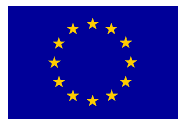SYSTEMS-BASED VIEW OF MELANOMA PROGRESSION: TOWARDS NOVEL DIAGNOSTIC (AND THERAPEUTIC) APPLICATIONS
Worldwide figures show that there were 160,000 incidences of melanoma in 2002, whilst 39,000 died from the disease. These upward trends are worrying, as malignant melanoma is one of the most difficult cancers to treat, due to its ability to spread quickly and its resistance to standard chemotherapeutic agents. In order to counteract this trend, targeted therapies that inhibit melanoma metastasis are required. The aim of SYS-MEL is to identify and validate prognostic and predictive biomarkers for melanoma, and to model the predictive value of these biomarkers in determining the efficacy of melanoma therapies.
The central objective is to bring together four European academic institutes and two SMEs to develop 3 prognostic/predictive biomarker assays for melanoma. 3 core areas of interest are epigenetics, signalling pathways in melanoma and systems biological approaches for predicting chemotherapy responses. SYS-MEL will have three main elements:
- Epigenomic and protein expression analysis of melanoma tissue, to validate an epigenomic signature initially identified in the FP7-funded programme Target-Melanoma;
- In silico modelling and prediction of patient responses to decarbazine DTIC using both in vitro analysis of apoptotic pathways and a novel systems biology approach, incorporating mathematical systems modelling, quantitative biochemistry and cell biology;
- Investigating the components of the P-Rex1 pathway that are involved in driving the migration of melanoblast cells, and thus the progression of metastasis, incorporating a computational system tailored to model complex signalling pathways.This approach will enable us to identify prognostic and predictive biomarkers for melanoma, and to develop a powerful computational modeling approach to predict disease progression and patient responses to treatment.
 This project has received funding from the European Union’s Seventh Framework Programme for research, technological development and demonstration under grant agreement no 611107, Marie Curie Action: “Industry-Academia Partnerships and Pathways”.
This project has received funding from the European Union’s Seventh Framework Programme for research, technological development and demonstration under grant agreement no 611107, Marie Curie Action: “Industry-Academia Partnerships and Pathways”.